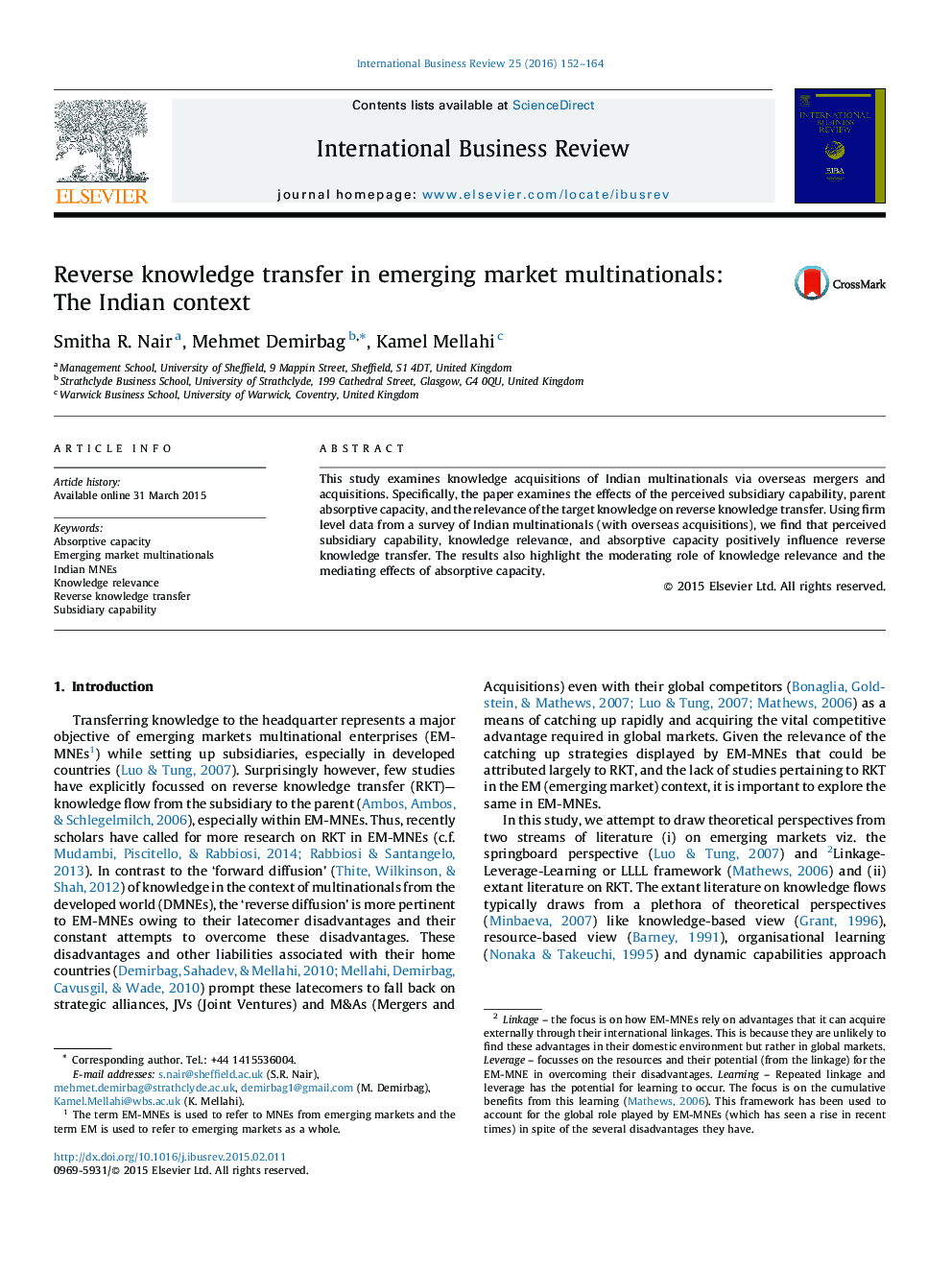| Article ID | Journal | Published Year | Pages | File Type |
|---|---|---|---|---|
| 1001827 | International Business Review | 2016 | 13 Pages |
•Indian MNEs, one of the key players amongst emerging economies have been in the limelight owing to their avid role as overseas acquirers and some of their high profile acquisitions.•In this context, this paper examines knowledge acquisitions from overseas mergers and acquisitions by Indian multinationals.•Specifically, the paper examines the effects of the perceived subsidiary capability, parent absorptive capacity, and the relevance of the target knowledge on the process of reverse knowledge transfer.
This study examines knowledge acquisitions of Indian multinationals via overseas mergers and acquisitions. Specifically, the paper examines the effects of the perceived subsidiary capability, parent absorptive capacity, and the relevance of the target knowledge on reverse knowledge transfer. Using firm level data from a survey of Indian multinationals (with overseas acquisitions), we find that perceived subsidiary capability, knowledge relevance, and absorptive capacity positively influence reverse knowledge transfer. The results also highlight the moderating role of knowledge relevance and the mediating effects of absorptive capacity.
